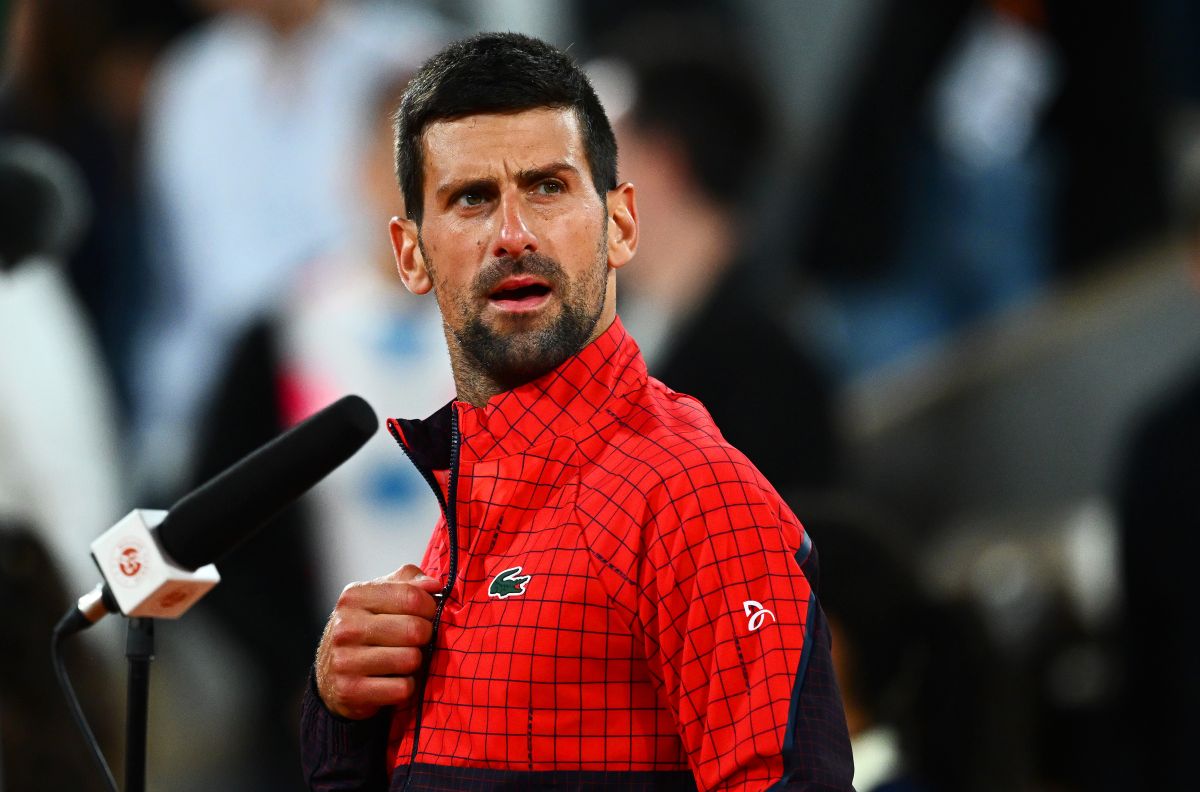The Serbian tennis player Novak Djokovic assured this Wednesday that he is “aware that people would not agree” with the political message about Kosovo that he wrote on the lens of a camera at the Roland Garros tournament last Monday, but despite this he is a subject that he “defends”.
Djokovic, 36, wrote “Kosovo is the heart of Serbia. Stop the violence ”after his victory on Monday in the first round of the French Grand Slam.
France’s sports minister said the Serb’s actions were “not appropriate” and should not happen again.
“A Grand Slam without drama, I don’t think it can happen to me,” Djokovic said for his part. “I guess that drives me too,” he added.

conflict in Kosovo
The sentence that Djokovic wrote refers to the tension in recent days in Kosovo, a territory that declared its independence from Serbia in 2008. Belgrade has never recognized that independence.
There has been violence in recent days following the installation of ethnic Albanian mayors in the north of the country, with police and NATO troops clashing with Serb protesters.
In his post-match press conference, Djokovic tried to put the controversy behind him.
Asked if he had thought about the negative reaction to his actions, the 22-time Grand Slam winner said: “Of course I am aware that a lot of people would disagree, but it is what it is. It’s something I stand for. So that’s all”.
The International Tennis Federation said Djokovic’s message did not violate any rules because Grand Slam rules do not prohibit political statements.
The French sports minister, Amelie Oudea-Castera, assured that there must be a “principle of neutrality for the playing field”.
Oudea-Castera said that she makes a distinction between the Serb’s message and messages of support for Ukraine in the face of Russia’s invasion, adding that it does not put Kosovo and Ukraine “on the same level.”
That includes supporting Ukrainian player Marta Kostyuk, who was booed by the crowd after she refused to shake hands with Belarusian Aryna Sabalenka on Sunday.
Belarus is a Russian ally and allowed Moscow troops to use its territory to launch the invasion of Ukraine last year.
Djokovic, whose father was born in Kosovo, said earlier in the week that he was “against wars, violence and any kind of conflict” but that the situation in Kosovo is a “precedent in international law.”

“Especially as the son of a man born in Kosovo, I feel the need to support our people and all of Serbia,” he said Monday.
“Kosovo is our cradle, our stronghold, the center of the most important things for our country. There are many reasons why I wrote that on camera.”
“Of course it pains me a lot as a Serb to see what is happening in Kosovo and the way our people have been practically thrown out of the municipal offices, so the least I could do was this.”
The Kosovo Olympic authorities have called on the International Olympic Committee (IOC) to open disciplinary proceedings against Djokovic, accusing him of stirring up political tension.
Djokovic’s messageI was going to raise blisters
Analysis ofGuy Delauney, correspondent forBBC News Balkans
“Kosovo is the heart of Serbia” may seem like a strange statement. After all, Kosovo became independent in 2008, and its southwestern geographic location means that, even before that, it was always on the periphery of Serbia.
But its symbolic meaning is still very important to many Serbs. The 1389 Battle of Kosovo has been mythologized as the pivotal event in the birth of Serbian identity. And many of the most important sites of the Serbian Orthodox Church are in present-day Kosovo.
Serbia is one of many countries that refuse to recognize Kosovo’s unilateral declaration of independence. And Serbs with family ties to Kosovo are especially interested in ensuring that the Serb policy of non-recognition continues.
By penning his message on the pitch, the country’s sports icon was showing his support, but in a way that was bound to raise blisters.
With his marker doodle, Djokovic clearly illustrated the complexity of the situation.
Also read:
– Carlos Alcaraz displaces Novak Djokovic and returns to number 1 in the world in the preview of Roland Garros
– Meeting of legends: José Mourinho visited Novak Djokovic at the Masters 1,000 in Rome
– Novak Djokovic will be able to play the US Open after change in mandatory vaccination policies
See original article on BBC
